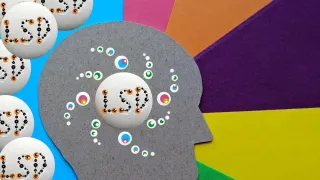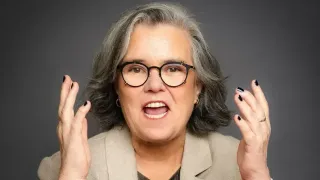
4 hours ago
Tom Holland Opens Up About ADHD and Dyslexia: 'It Can Be Slightly Intimidating'
READ TIME: 2 MIN.
Tom Holland, renowned for his role as Spider-Man and celebrated as one of the most influential actors of his generation, has opened up about his experiences living with both ADHD and dyslexia. In a recent interview with IGN, Holland spoke candidly about the realities of navigating the entertainment industry—and life itself—while embracing his neurodivergent identity .
Diagnosed with dyslexia at the age of seven, Holland described spelling as his greatest ongoing challenge. He explained that despite difficulties, his parents’ unwavering encouragement—particularly their mantra of “as long as you try your best”—played a pivotal role in building his confidence and perseverance .
“For me, having a blank canvas can be slightly intimidating,” Holland shared. He explained that the freedom of unstructured creative work, often celebrated in acting, can create unique hurdles for those with ADHD. To navigate this, Holland has embraced the concept of play, using imaginative and unstructured creativity as a tool to prepare for roles and connect with his inner child .
Holland’s openness about his diagnoses marks an important step in challenging stigma around neurodivergence. While many public figures have spoken about learning differences, Holland’s willingness to discuss both the “slightly intimidating” aspects and the strengths that come with ADHD and dyslexia is a welcome addition to ongoing public conversations about mental health and inclusion .
His story is especially resonant for communities—including LGBTQ+ audiences—where intersectionality and embracing diverse identities are celebrated. The courage to speak about personal struggles, especially those often misunderstood or stigmatized, is a powerful example of how vulnerability can foster both self-acceptance and empathy for others .
Holland’s disclosure has drawn positive responses across social media, with fans and advocates highlighting the importance of representation for neurodiverse individuals in mainstream media . LGBTQ+ advocates point out that Holland’s candor reflects a broader cultural shift toward affirming difference—whether related to sexuality, gender identity, or neurodivergence.
Research has shown that LGBTQ+ individuals are statistically more likely than their non-LGBTQ+ peers to be neurodiverse, including higher rates of ADHD and learning differences . As a result, figures like Holland who are open about their experiences can become powerful role models, demonstrating that unique brain wiring is not a barrier to success or self-expression.
Holland credited much of his success and resilience to the supportive environment nurtured by his family. He encouraged others to seek out and build their own support networks, emphasizing that unconditional encouragement—especially for young people with learning differences—can be transformative .
LGBTQ+ organizations have echoed this message, noting that inclusive spaces are essential for well-being. When environments affirm both neurodivergent and LGBTQ+ identities, individuals are better able to thrive, explore creativity, and pursue their goals .
As Holland continues to build his career, he is also using his platform to support projects that reflect the value of neurodiverse perspectives. His recent work on a LEGO short film, which draws on themes of imaginative play and creativity, exemplifies his commitment to celebrating difference through art .
Advocates hope Holland’s openness will inspire further conversations about neurodivergence, particularly within entertainment and LGBTQ+ spaces. As more public figures share their stories, visibility and acceptance grow—making it easier for others to access resources, find community, and take pride in all aspects of their identity.






